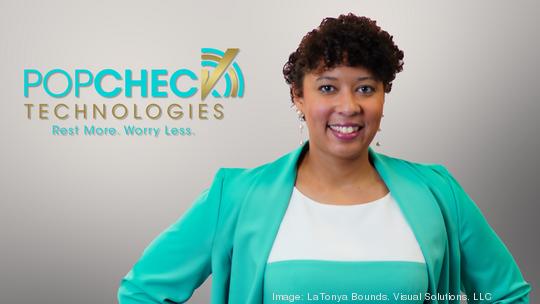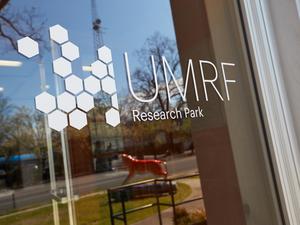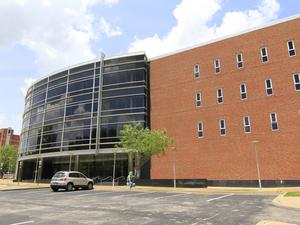
If it was what she wanted, Erika Dillard wouldn’t struggle to find work as a physician. She has an M.D. and Ph.D. from the University of Tennessee Health Science Center (UTHSC) and spent four years as a neurosurgery resident at the Thomas Jefferson University Hospitals in Philadelphia.
Yet after growing up in Huntsville, Alabama — where NASA’s George C. Marshall Space Flight Center is located — she also has a strong appreciation for engineering, and for years, has been intrigued by the possibility of creating her own product.
“I was in a position where I had to make a choice,” Dillard said. “Do I want to continue doing neurosurgery, the way it’s traditionally done? Or do I want to try my hand in utilizing all my knowledge to create something.”
It’s that desire to blend the worlds of math and medicine that led her down her current path as an entrepreneur with Patents2Products, a partnership between the University of Memphis and Epicenter that hires post-doc fellows to start businesses using patented intellectual property.
With the cost split between the U of M and Epicenter — it’s about $1 million — the organizations provide researchers with two-year funded positions, along with resources to launch startups. For example, participants get a salary with benefits, an on-campus lab, space at the University of Memphis Research Foundation's research park, and mentorship.
Dillard was the first person admitted into the program in 2019, and her company, PopCheck Technologies, is developing a product that could predict if hospital patients are going to develop venous blood clots.
The idea for the device stems from her time as a resident in Philadelphia, where she did research on the prevention and detection of the clots in spinal injury patients, who had a high risk of getting them. She realized, though, that it wasn’t just spinal injury patients who were prone to venous clots — it was anyone hospitalized for more than 24 hours.
And detecting blood clots in these patients can be challenging, especially in the days after they’ve returned home.
“When patients leave the hospital, it’s up to them and their caregivers to determine if they’re having symptoms [of blood clots], and if they’re concerning enough to call the physician,” Dillard explained. “The caveat is that pain is a symptom people can often underplay. It’s subjective, telling that to a physician, often giving the story over the phone.”
Even if a patient does go to the emergency room with symptoms of blood clots, they might be told that it’s likely a strained muscle and to come back if the problem persists. But a delayed diagnosis can lead to more severe problems, or even death, if the blood clot breaks free from the veins and lodges in the lung arteries.
Dillard’s device, however, is set to predict if a patient will end up with a venous blood clot, by measuring biomarkers externally and using an algorithm that determines if developing patterns are consistent with the development of one.
Currently, the focus is on hip and knee replacement patients, as identifying blood clots in them is particularly difficult, since pain and swelling in the legs is a normal symptom of the procedure. And the product is in the prototype stage, with several components attached together.
But the final product will function like this: An adhesive will be attached to the patient’s leg and embedded electrodes will provide stimulation to the muscles to prompt blood flow. This will allow it to measure biomarkers, to determine if there are patterns that are concerning.
For now, though, it remains in the prototype stage, and PopCheck is gearing up to do an animal study at UTHSC, with studies using human patients, and the long road to FDA approval, approaching as well.
To pay for all of this, she’s seeking $1 million in funding, in two phases. The first, $250,000 phase will cover prototype iterations, the animal research, and patent submissions, while the second, $750,000 phase will cover some clinical studies, creating a minimum viable product, and the full application submission to the FDA.
She’s also entered various pitch competitions with cash prizes — to gain as much non-dilutive funding as possible — and so far, has won about $75,000. This includes her recent first place victory at the National Black MBA Association’s (NBMBAA) Scale-Up Pitch Challenge, which netted her $50,000.
These pitch competitions have brought her a non-monetary benefit, too.
“One of the things very difficult for people with a science background, is to relay the message not embedded in scientific jargon,” she said. “The pitch competitions have forced me to figure out how to explain what we’re doing in a way that resonates with people who don’t have scientific background."









